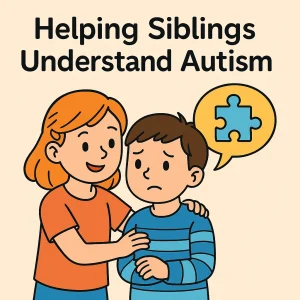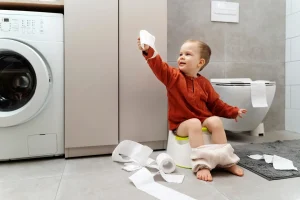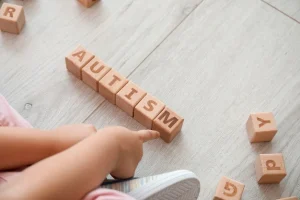Can Aphasia Be Reversed? Treatment Options and Recovery
Last Updated: April 5, 2025
Have you or a loved one been diagnosed with aphasia? If so, you know firsthand the profound impact it can have on communication. Aphasia typically arises after a stroke or brain injury and affects the ability to speak, understand others, read, and write. It can feel isolating and frustrating, not just for those experiencing it, but also for their families and friends. However, the key question many people grapple with is: Can aphasia be reversed?
Understanding Aphasia
What is Aphasia?
Aphasia is a communication disorder that occurs when the parts of the brain responsible for language are damaged. It can affect the ability to speak, understand what others say, and read or write. Aphasia does not impact intelligence, but it makes expressing and processing language extremely challenging.
People with aphasia may find themselves searching for the right words, speaking in short or incomplete sentences, or substituting one word for another. This can make everyday conversations difficult and sometimes lead to social isolation. Comprehension issues might also arise, where understanding both spoken and written language becomes hard, impacting the ability to follow conversations or read a book.
Causes of Aphasia
Aphasia is most commonly caused by stroke—specifically when a stroke occurs in areas of the brain that control language comprehension and speech production. However, any brain injury can potentially lead to aphasia, including traumatic brain injuries, brain tumors, and other neurological disorders such as dementia.
The type and severity of aphasia depend on the exact location and extent of the brain damage. Understanding these causes can help in diagnosing aphasia accurately and tailoring an effective treatment plan. In our journey towards recovery, recognizing the underlying cause is a critical first step.
Know more about on Aphasia: Causes, Symptoms, Types and Treatment
Can Aphasia Be Reversed?
Exploring the Possibility of Recovery
When it comes to reversing aphasia, the landscape is hopeful yet complex. Recovery is indeed possible, but it varies significantly from one individual to another, influenced by factors such as the aphasia’s severity, the specific brain areas affected, the age and overall health of the individual, and the timing of intervention.
Early intervention is critical. Research suggests that the most significant recovery typically occurs within the first few months after a stroke or brain injury, during a period known as spontaneous recovery. During this phase, the brain is most adaptable and can begin to rewire itself. However, improvements can continue for years, especially with ongoing, targeted speech therapy.
Therapy strategies often include speech-language therapy, which is tailored to meet each person’s specific needs. These therapies might involve exercises to improve word-finding, comprehension skills, and ways to communicate through alternative strategies when verbal communication is challenging.
Know more about our article on Can Apraxia Go Away? Understanding the Journey
Treatment Options for Aphasia
Speech Therapy Techniques
Speech therapy stands as the cornerstone of aphasia treatment, offering a beacon of hope for those seeking to reclaim their communication abilities. This therapy involves personalized programs designed by speech-language pathologists who assess and address the unique challenges faced by each individual. Techniques used in speech therapy may include:
- Naming Therapy: This involves exercises that help individuals recall words and improve their vocabulary.
- Conversational Coaching: Therapists work with patients to enhance their conversational skills through role-playing and simulated social scenarios.
- Technology-Assisted Practice: Using apps and software to provide regular practice and feedback, which can be crucial for ongoing improvement.
Medication and Surgery
While there’s no specific medication that can cure aphasia, certain medications can support recovery by improving overall brain health and function. These include drugs that manage symptoms related to the underlying causes of aphasia, such as blood thinners for stroke survivors or medications that reduce brain swelling in cases of traumatic injury.
In some instances, surgery may be necessary to address the root causes of aphasia, such as removing brain tumors or repairing vascular anomalies that could lead to strokes. These medical interventions can help stabilize the condition and prevent further damage, providing a better platform for speech therapy and rehabilitation.
Alternative Therapies
Beyond traditional speech therapy and medical treatments, alternative therapies have shown promise in supporting aphasia recovery:
- Music Therapy: Engaging with music allows some individuals to improve their rhythm and flow of speech. Techniques like melodic intonation therapy use the musical elements of speech to enhance communication for those who have difficulty with conventional speech.
- Cognitive Rehabilitation: This therapy focuses on improving cognitive processes associated with language and communication. It includes memory games, problem-solving tasks, and exercises that enhance attention and executive function.
Role of Technology in Aphasia Rehabilitation
The integration of technology into aphasia rehabilitation is transforming the ways therapies are administered, enhancing their effectiveness and engagement.
Digital Speech Therapy Tools
Personalized Sessions: Technological advancements enable customized therapy that adjusts to the pace and progress of each individual, making treatment more effective.
Consistent Feedback: Digital tools provide immediate feedback, allowing individuals to correct their speech in real-time, which accelerates learning and improvement.
Virtual Reality (VR) and Augmented Reality (AR) in Aphasia Therapy
Simulated Environments: VR and AR technologies create realistic scenarios that mimic everyday interactions, providing a safe space for practice.
Enhanced Engagement: The immersive nature of VR and AR captures interest, maintaining motivation throughout the rehabilitation process.
Teletherapy: Remote Speech Rehabilitation
Accessibility: Teletherapy eliminates geographical and physical barriers to treatment, enabling access from anywhere, which is particularly beneficial for those unable to travel.
Flexibility: This mode of therapy allows for scheduling flexibility, ensuring that individuals can consistently engage in sessions without disrupting their daily routines.
Mobile Applications for Continuous Practice
On-the-Go Learning: Mobile apps allow individuals to practice speech exercises at their convenience, integrating rehabilitation seamlessly into their daily lives.
Track Progress: These applications often feature progress tracking, which helps monitor improvements and adjust treatment plans accordingly.
Strategies for Coping and Support
Support Networks and Groups
Recovering from aphasia can be a deeply personal journey, yet the role of a supportive community cannot be overstated. Support networks and groups provide more than just social interaction; they offer a platform for sharing experiences, tips, and encouragement, which can be crucial during recovery.
Finding Strength in Numbers: Joining aphasia support groups, either online or in person, allows individuals to connect with others facing similar challenges. These groups often facilitate emotional support, exchange of practical advice, and sometimes, friendship. They serve as a reminder that no one is alone in this journey.
Engaging with Local Communities: Many local health centers and hospitals host regular meetings for people with aphasia and their families. Participating in these gatherings can help in staying informed about the latest therapies and resources, as well as in understanding different aspects of the condition.
Family Involvement: Encouraging family members to participate in support groups can also be beneficial. It helps them better understand the condition and learn effective ways to communicate with their loved ones, enhancing the overall support system.
Daily Exercises and Activities
Consistent practice is key to making progress in aphasia recovery, and there are numerous exercises and activities that can be performed at home to improve language skills:
Picture Description Exercises: Using flashcards or picture books, describe what you see. This helps in building vocabulary and sentence structure.
Daily Journaling: Encourage writing a few sentences about daily activities or thoughts. This not only aids in language recall but also in maintaining cognitive function.
Reading Aloud: Reading books, newspapers, or magazines aloud can improve reading comprehension and speech clarity. It’s also a great activity to do with a caregiver or family member.
Technology Aids: Utilizing apps and software designed for aphasia therapy can provide structured practice and feedback. Many of these tools are available through resources like Wellness Hub, which offers a range of applications tailored to enhance language rehabilitation at home.
Also read: 10 Cognitive Exercises That Can Help Improve Aphasia Symptoms
Conclusion
Aphasia recovery is a journey filled with hope. With the right therapy, support, and innovative tools from Wellness Hub, improvement is not just possible—it’s achievable. Whether you’re struggling with speech or know someone who is, you’re not alone. At Wellness Hub, we offer user-friendly tools to help regain communication skills effectively. Interested in learning more? Visit us at Wellness Hub to explore our specialized therapy resources. Let’s take this step towards better communication together. Your journey to clearer speech can start today with the right support by your side.
Frequently Asked Questions:
1. What is aphasia and how does it affect speech?
Aphasia is a communication disorder that results from damage to parts of the brain associated with language. It can affect the ability to speak, understand spoken language, read, and write. People with aphasia may have trouble finding the right words, forming coherent sentences, or understanding conversations, which can be frustrating and isolating.
2. Can aphasia be completely cured?
The potential for a complete cure of aphasia varies depending on the severity and location of the brain injury. While some individuals may see significant improvement or even a full return to their pre-condition communication abilities, others may continue to experience some level of language impairment. Consistent therapy and support can lead to substantial recovery.
3. How quickly does recovery from aphasia happen?
Recovery timelines for aphasia differ from person to person. The most rapid recovery typically occurs during the first few months after the stroke or brain injury, a period known as spontaneous recovery. However, continued improvement can occur over several years with ongoing therapy and practice.
4. What are the best treatments for aphasia?
Speech and language therapy is the primary treatment for aphasia. This therapy helps individuals improve their ability to communicate by restoring as much language as possible and teaching how to compensate for permanently lost language skills. Therapists may use a variety of techniques, including exercises, conversational tactics, and technology-assisted tools.
5. How can technology help with aphasia recovery?
Technology offers innovative ways to support aphasia treatment, including speech therapy apps, language games, and virtual reality programs. These tools provide engaging, repetitive practice that can help strengthen neural pathways involved in language and communication. Technology also allows for personalized therapy sessions that can be adjusted to the individual’s specific needs and progress.
6. What role do support groups play in recovering from aphasia?
Support groups provide emotional and social support, crucial for those dealing with aphasia. They allow individuals and families to connect with others who understand their challenges, share experiences and coping strategies, and reduce feelings of isolation. These groups often offer resources and information about the latest treatment options as well.
7. Are there any specific speech therapy exercises for aphasia at home?
Yes, several exercises can be practiced at home to help improve language skills:
- Naming Therapy: Practice naming objects in the home or in pictures to improve word retrieval.
- Repetition Exercises: Repeat words and phrases spoken by others to improve speech fluency.
- Reading and Writing Practice: Engage in simple reading and writing tasks daily.
8. Can children develop aphasia, and how can parents help?
Although less common than in adults, children can develop aphasia typically due to brain injury or severe infections. Parents can assist their recovery by:
- Engaging in recommended speech therapy exercises at home.
- Maintaining a patient and supportive communication environment.
- Using visual aids and gestures to facilitate understanding.
9. What should parents look for when choosing a speech therapist for aphasia?
When selecting a speech therapist for a child with aphasia, ensure they are certified and experienced in pediatric aphasia. It’s beneficial to choose a therapist who uses a variety of engaging therapy methods and incorporates technology to keep sessions interactive and productive.
10. How can parents stay positive if progress is slow in aphasia recovery?
Maintaining a positive outlook is crucial, even when progress seems slow. Celebrating small improvements, staying actively involved in therapy, and continuous communication with healthcare providers can help keep spirits up. Additionally, joining support groups can provide emotional comfort and practical advice from other parents in similar situations.
About the Author:
Shilpa Deshpande
Shilpa Deshpande is a skilled speech-language pathologist with over 14 years of experience. Fluent in Kannada, Telugu, Hindi, and English, she specializes in parent counseling, speech sound disorders, fluency assessment, and speech-language evaluations. Shilpa excels at working with children with developmental disorders, offering creative and effective therapy programs. Currently, at Wellness Hub, she holds a BASLP degree and is registered with the RCI. Her patience, ambition, and dedication make her a trusted expert in her field.
Book your Free Consultation Today
Parent/Caregiver Info:
Client’s Details:
* Error Message









